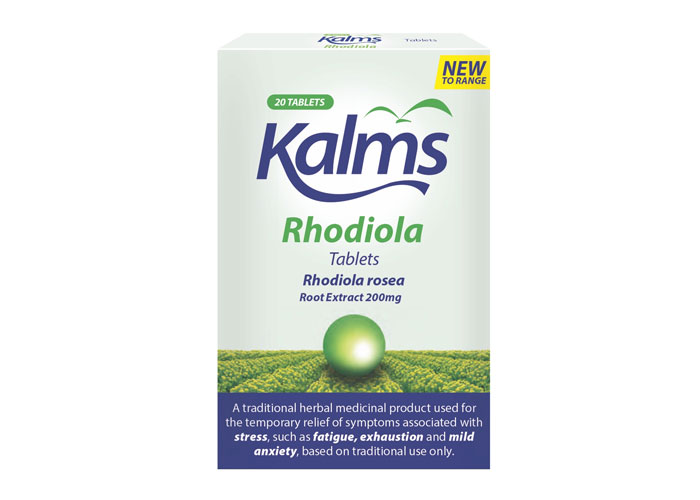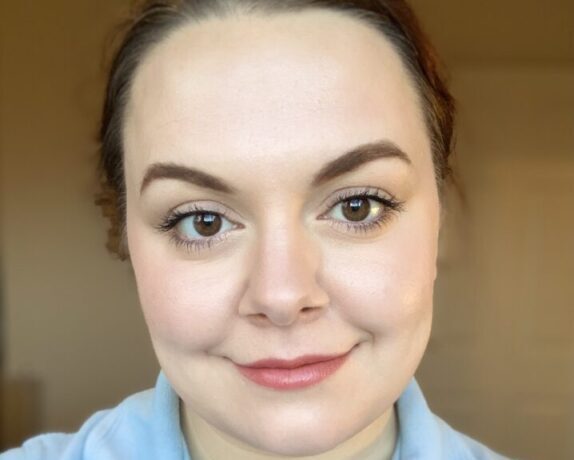Burnt-Out Britain: 71% of Parents and 69% of Keyworkers suffering symptoms of burn out
Popular stress-relief brand Kalms this week launches a new product, Kalms Rhodiola, to relieve exhaustion, stress and fatigue – all symptoms of burnout. This comes as newly released research reveals that financial pressures, a lack of control of everyday lives, and a poor work-life balance over the past 12 months has led to 71% of parents and 69% of keyworkers now reporting symptoms of burnout. (i)
Burnout was described by the World Health Organisation in 2019 as an “occupational phenomenon” (ii), conceptualised from chronic workplace stress. However, since the start of the global pandemic hit in 2020, we have seen a greater emphasis on the implications of burnout, particularly those working on the frontline as key workers, or the additional parental duties of home-schooling, and how it affects all aspects of our professional and personal lives.
The contrast of triggers and symptoms between men and women, parents, and non-parents, indicate the societal pressures and levels of uncertainty that have undoubtably taken their toll on the nation over the past year – and while the triggers and factors differ, few have been unaffected.
Women more affected than men
Women experienced more symptoms of burnout than men, with low motivation (55%), increased irritability (50%) and low energy levels (54%) more frequent than their male counterparts.
Whilst age was another factor that changed the experience of burnout amongst adults, with those aged under 25 attributing excessive workloads (37%) and people pleasing (26%) as two of the main underlying issues of Burnout, compared with adults aged over 25 years old across both genders who regarded financial pressures (38%) as the main cause.
What is burnout?
Author of “Burnt out: The Exhausted Person’s Guide to Thriving in a Fast-paced World”, Selina Barker, comments:
“Burnout is a state of feeling emotionally, physically and mentally exhausted, as a result of excessive and prolonged stress caused by over-working. It is our body’s way of signalling there is an energy crisis taking place and something has to change.
“When we reach this point of exhaustion, we can feel like we can no longer cope with our daily responsibilities, struggle to focus, lose our compassion for others and struggle to switch off or sleep at night.”
Due to excessive levels of stress, low energy, and prolonged feelings of physical, mental or emotional exhaustion, 36% of those surveyed sought help from their GP, some of whom were prescribed anti-depressants and other medications.
Selina Barker comments:
“Thankfully, burnout is not a fixed state of being, by identifying what has been causing you to burnout and learning how to manage your energy and design your working day so that you can thrive, you can break free from burnout and become more energised, calmer and more fulfilled at work than ever before.”
How can Rhodiola help?

Kalms new Rhodiola Tablets offer a relief from stress, exhaustion and fatigue, common symptoms associated with burnout (iii). Known for its adaptogen properties, research suggests Rhodiola rosea, is an effective stimulant which can help to regulate the body’s stress hormones and relieve symptoms associated with burnout (iii).
Studies have shown that two daily tablets of Rhodiola rosea can help fight fatigue and restore energy levels (iv) by increasing the body’s resistance to stress. This is because it balances the neurotransmitters in the brain, without lowering blood sugar levels, which enhances our ability to concentrate, maintain focus, and promotes a positive mood (v).
Tackling Burnout
Emphasising the need to restore our energy levels after a burnout episode, author Selina Barker stresses the need for rest and recuperation:
“When you’re feeling fully burnt out or feeling like you’re about to burnout, the first thing you need to do is STOP. Hit pause on your to-do lists, cancel your plans and get into bed. Rest and recovery need to be your top priority. Treat yourself as if you had the flu.
“If you’ve had a mild burnout then a weekend might be enough to restore you. If you’re severely burnt out, then you might need to take a few weeks or even a few months off from work.
“Whatever time you take to recover from burnout, focus on doing things that help you to switch off from work, deeply relax and calm your nervous system: walking in nature, gentle exercise, plenty of sleep, hot baths, nourishing food, talking to a friend about how you’re doing.
“You can also explore the use of an adaptogen, such as Rhodiola rosea that can help to restore the body’s natural equilibrium from the inside out.”
Kalms Rhodiola is available instore and online at supermarkets and pharmacies nationwide, from online retailers such as Amazon or directly from www.kalmsrange.com
About Selina Barker
Selina Barker is a Career and Life Design Coach, author,and podcaster, who has been helping people break free from burnout and create lives and careers they love for over a decade. Selina’s book, ‘Burnt Out: The exhausted person’s six-step guide to thriving in a fast-paced world’ was released in April 2021 by Aster and is available to buy from www.theburntoutbook.com
References
i The impact of Burnout on Working Britain, carried out by Kalms, February 2021 with 2,011 UK respondents.
ii World Health Organisation: https://www.who.int/news/item/28-05-2019-burn-out-an-occupational-phenomenon-international-classification-of-diseases
iii Kelly. G (2001) Rhodiola rosea: a possible plant adaptogen. Altern Med Rev pp 293-302.
iv Kasper. S, Dienel. A (2017) Multicenter, open-label, exploratory clinical trial with Rhodiola rosea extract in patients suffering from burnout symptoms.
v Edwards. D, Heufelder. A and Zimmermann. A (2012 )Therapeutic effects and safety of Rhodiola rosea extract WS(R) 1375 in subjects with life-stress symptoms-results of an open-label study. PhytotherRes pp 1220-1225.





